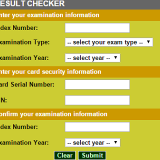How to Prepare for the TOEFL
TOEFL is a test used in examining if an individual from a country where English is not spoken as a first language understands the rules of communication in English language. The tests measure the writing, listening, reading, and speaking ability of the individual.
Most people often get nervous when preparing for the TOEFL because they do not understand what to expect in the test if it’s something they would pass with ease or end up blowing all their hard end money since TOEFL is another expensive language test like IELTS.
Passing the TOEFL test is all about being prepared. You need not feel overwhelmed or nervous. The test tests your use of English in real life as most of the questions asked are those used in real-life settings.

Here are ways you can prepare for the TOEFL and pass it with a good score:
Get Familiar With the TOEFL Format
The TOEFL test contains three parts which are reading, listening and writing. You can get familiar with the format of TOEFL by visiting our TOEFL resource page which has enough information on the test format.
Keep in Mind the Reason for Taking the Test
Many candidates take the TOEFL test for various reasons. Some might need it to apply to a foreign university, job, course, or even to migrate to another country. Others might only want to know their level of English Language speaking ability.
When you know the reason for taking the TOEFL test, you’ll be able to get prepared even better. For example, if you were taking it for gaining admission to the University, you’ll know what score you need to aim to get or surpass. If it’s for a job which requires you to use the phone frequently, you’ll know it’s necessary to excel in the speaking and listening sections.
Use a Study Guide
You can use study guides that supply you with resources that help you identify your strength and weakness on each module of the TOEFL. You can buy the official TOEFL guide which also comes with a DVD to help you prepare for each section of the test.
How to Answer Each Section
There are four sections to complete on the TOEFL which are the reading, listening, writing, and speaking. While answering questions from the practice tests underline the main ideas and make sure you have your dictionary to help with complex words. When you are through answering the questions, check your answers afterward to see where you made mistakes and learn from them.
For the listening section, it will be essential to write the main ideas too to remember the full details when answering questions.
When tackling the writing section, it’s important to think and visualise the topic before creating an outline which should include an introduction, body, and conclusion. After writing, read it over and correct any spelling or grammar errors.
When addressing the speaking section, do well to relax and answer in your natural but audible voice tone. Answer the questions asked in a simple sentence and avoid sounding technical and answering questions they didn’t ask.
Practise Reading, Listening, Writing, and Speaking
You can practise reading by reading for 30 minutes every day. When reading a passage, stop after two paragraphs and ask yourself questions like, “What was the main idea?” “Was there a conflict?” Etc. While reading, ensure you are underlining new words you find.
To pass the listening section, you must listen to audios of native speakers and real people. If you don’t understand something while listening to audio, you can always rewind.
Write a journal or any other writing exercise to help prepare you for the writing section of the test. Use at least 15 minutes every day to write in English. You should also check for errors with grammar software such as Microsoft Word or Pro Writing Aid (although these application are not always accurate at spotting errors).
Practise speaking by talking to your friends, teachers, or any other available person. You can even practise talking to yourself.
Relax Before the Test
Since you’ve been practising various test questions, it’s natural to feel nervous and overwhelmed as the test dates approach. Feeling this way will only leave you disorganised and afraid. You must try to feel relaxed and ensure you have plenty of rest.
Visit the Test Centre Before the Test Date
It’s important to visit the test location before the test date. This would enable you to get familiar with the route to the test centre and would enable you arrive on time on the exam day.















